#regnery
Photo
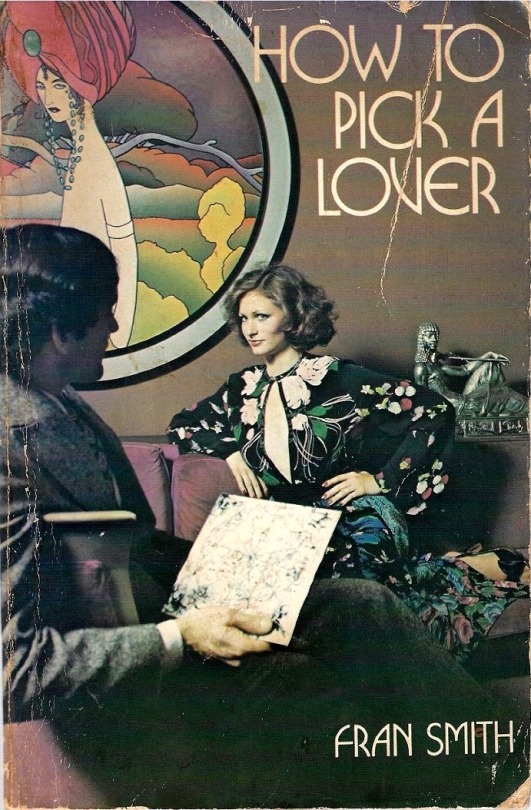
Fran Smith - How To Pick A Lover - Regnery - 1976
862 notes
·
View notes
Text
For all of my besties that watched the saddle club growing up..... were we all just in love with Max? Was it our daddy issues? I think it was our daddy issues.
9 notes
·
View notes
Text

**💗 FREE ON AMAZON (for 5 days only!) 💗**
Arrange Me (Book #1 of the Arranged duo!)
by Katy Regnery - Romance Author
Sick and tired of the Manhattan dating scene, Courtney signs up for an arranged marriage service. But she begins to wonder if she’s missing what’s right in front of her: sweet, sexy bartender Josh.
💗An Amazon Top-100 Bestseller!💗
****
Grab it for free (on Amazon and KU only!)
Amazon (US): https://a.co/d/9hEGQYU
Amazon (UK): https://amzn.eu/d/0eCNXKi
Amazon (AU): https://amzn.asia/d/hexlO8b
Amazon (CA): https://a.co/d/bjAwYnW
0 notes
Text
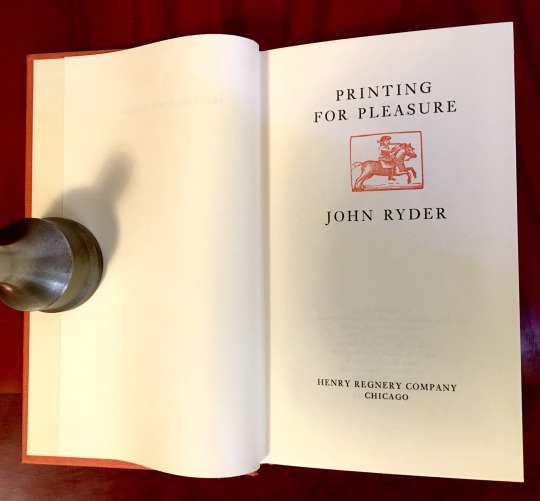
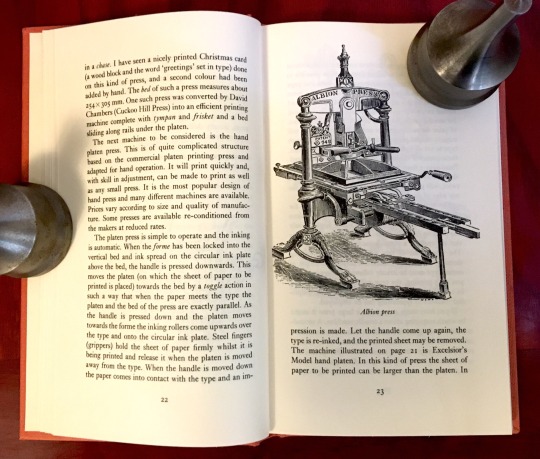
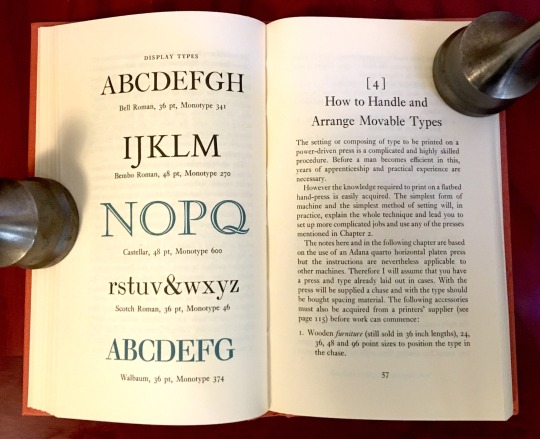
Book 076
Printing for Pleasure
John Ryder
Henry Regnery Company 1977
This small hardcover, a brief history and how-to guide to hand printing, is sadly missing its dust jacket, but it is, as you might expect, lovingly printed.
#bookshelf#illustrated book#library#collection#personal library#personal collection#bookseller#books#book lover#bibliophile#printing for pleasure#john ryder#Henry regnery company#reference#design#typography
0 notes
Text
Regnery Publishing is a fascist publisher owned by secretive right-wing corporate Christo-fascists that want to reshape America. They also provide millions in dark money into Ted Cruz’s office, some of which he disseminates to other fascist campaigns like Boebert in Colorado.
30 notes
·
View notes
Text
Republikkkans have created Nazi states within our nation. Their fascism isn’t going away it will only increase as each red state tries to out-fascist the others.
I’m not certain the United States can remain a nation without a civil war taking place. The Republikkkan demagogues and their oligarch masters must be stopped before widespread violence takes place in every state. Texas and Florida are already rogue states with private militaries and dictator governors operating in an unconstitutional manner with the rubber stamp of Koch/Walton puppet legislatures.
Make no mistake, Russia and China are heavily funding the dissolution of the United States through their Republikkkan stooges. Oligarchs like Koch, Walton, Musk, Murdoch, Regnery, DeVos, Mercer, et al are doing the same for their own personal enrichment.
Few on our side will even acknowledge this threat let alone stand up to it. Our leadership is under siege and is constantly on the defensive putting out minor brushfires will our enemies batter us through asymmetrical warfare.
24 notes
·
View notes
Text
An atheist never killed a religious zealot
A homosexual never killed a homophobic monster
A black person never shot up a white church
But we are somehow the bad guys, maybe we should change our tactic.
Clearly, us being decent human beings isn't enough for people like Matt Walsh, Charlie Kirk, Ted Cruz, Ann Coulter, Tucker Carlson, Ben Shapiro, Laura Ingraham, WorldNetDaily, Regnery Publishing, One America News Network, National Review, The American Conservative, The American Spectator, Blaze Media, Breitbart News, The Daily Caller, Alliance Defending Freedom, American Family Association, Concerned Women for America, Family Research Council, Focus on the Family, Independent Women's Forum, Judicial Watch, Turning Point USA, JK Rowling, Jordan Peterson, The Heritage Foundation, Ann Coulter, Bill O'Reilly, Dennis Prager, Michael Savage, Franklin Graham, Tony Perkins, Ted Cruz, Rand Paul, Mike Pence, Michele Bachmann, Newt Gingrich, Dinesh D'Souza.
For our survival, we are fighting against really powerful evil people. These White Christian nationalists will never rest until they remove all of us. The idea they carry in their DNA is more dangerous than a nuclear bomb. This is no more a metaphorical fight between left and right. Evil is getting more organized, and so should we.
This isn't the time for pussyfooting, this isn't the time for hesitance.
#terror#scary#horror#queer solidarity#queer culture#queerplatonic#queer#queer community#queer stuff#queer lit#queer romance#queer as folk#lgbtqia#lgbt#lgbt pride#agender#colorado springs#pulse club#q club shooting#q club#homophobia#current events#news
25 notes
·
View notes
Text


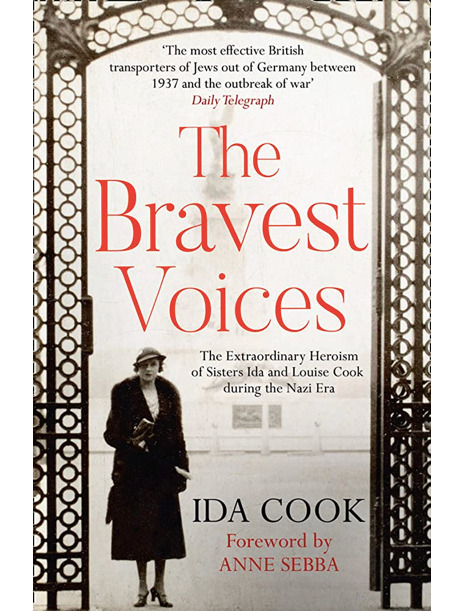

We Followed Our Stars, by Ida Cook. London: Hamish Hamilton, 1950; rev. ed., Toronto: Harlequin, 1976. Reprinted, as Safe Passage: The Remarkable Story of Two Sisters Who Rescued Jews from the Nazis, with a new foreword by Anne Sebba, Toronto: Harlequin, 2008; reprinted again, as The Bravest Voices: A Memoir of Two Sisters’ Heroism During the Nazi Era, Don Mills, Ont.: Park Row Books, 2021.
Overture of Hope: Two Sisters’ Daring Plan That Saved Opera’s Jewish Stars from the Third Reich, by Isabel Vincent. Washington, D.C.: Regnery History, 2022.
As soon as I learned of Isabel Vincent’s book, I knew that it would need to be read with great caution. That feeling was reinforced when I read the “about the author” blurb on the book’s dust jacket. Then I looked at the bibliography, and wondered if I really needed to read it at all. (Here I must stop and thank the collection development, acquisitions, and cataloguing staffs of the Chicago Public Library. This is the second time in less than three years that they’ve purchased a book at my request, and in both cases they’ve managed to put it into my hands in less than a month.)
Why the unease? To begin with, Regnery Publishing’s stable of authors includes Ann Coulter, Ted Cruz, Newt Gingrich, David Horowitz, Sarah Palin, and similar types.
Second, it turns out that Isabel Vincent isn’t a historian: like Lynne Olson, she’s a journalist writing about history. Not only that: Vincent is an investigative reporter for the New York Post! One has to wonder what the phrase “investigative reporter” actually means in the context of that truly filthy tabloid, a jewel in the crown of Rupert Murdoch’s NewsCorp. On the other hand, I must say that Vincent seems far more comfortable using primary sources than Olson does — her research for Overture of Hope included examining 33 archival collections in seven countries. As well, the book carries an endorsement from the historian Blanche Wiesen Cook, who is not exactly a darling of the right.
Finally, the Cook sisters’ story is far from untold. I’ve known of them for at least the past several years, although I’m no longer sure how I learned: I could swear that there was an article about them in Opera News four or five years ago, but I can’t locate it. In any case, as early as 1950 Ida Cook wrote a memoir of their exploits (revising it in 1976), which is why this is a review of two books, not just one. She was the subject of a 1956 episode of This is Your Life. In 1964 Yad Vashem honored the Cook sisters as Righteous Among the Nations. They were interviewed in McCall’s in 1966 (the article was reprinted the same year in The Australian Women’s Weekly). They also inspired an essay in Granta in 2007, and I found a goodly number of other newspaper and magazine articles about them while searching for image files to use in this post.

Ida (at left; 1904-1986) and Louise (1901-1991) Cook seem to me slightly too young to be classed with the hundreds of thousands of British women for whom marriage became, if nothing else, a simple numerical impossibility in the wake of the First World War and the influenza pandemic that overlapped it. Nevertheless, that’s where Vincent situates them. The daughters of a Customs and Excise officer, they had both entered civil service themselves by the end of 1920, as typists. They were then living with their parents and younger brothers in Wandsworth, London, but the family had moved several times while they were growing up. During a stint in Alnwick, Northumberland, they attended The Duchess’ School, where music was one of their exam subjects: Louise was a pianist and Ida was a violinist.
Their passion for opera seems to have come about more or less by accident. One day in 1923 Louise, who worked for the Board of Education, wandered into a lunchtime lecture on music being given on the premises, returned home in a daze, and announced that she simply had to have a gramophone. She proceeded to buy one on an installment plan, along with ten records. (These would have been 78rpm discs, with a single track, three or four minutes long, on each side.) They were mostly of instrumental works, but also included recordings by two sopranos, Amelita Galli-Curci and Alma Gluck.
These quickly eclipsed everything else for the Cook sisters, who pooled their savings to buy the cheapest available tickets to three performances at the Royal Opera House, Covent Garden: they saw Tosca, Rigoletto, and La Traviata, all excellent ways to get started with opera. I was startled to learn that the Covent Garden opera season was only two months long in those days; apparently, the opera house was used as a dance hall during the rest of the year.
When the Cooks learned that Galli-Curci was to give five concerts in London in late 1924 (her first appearances in the U.K.), they bought tickets to all of them. After the first one they wrote her a fan letter, enclosing a handkerchief that Ida had embroidered, and received a letter back by return post, inviting them to come back stage and say hello after the last, which they did.
Having learned in the meantime that Galli-Curci confined her operatic engagements to the Metropolitan Opera, in New York, the Cooks decided that they would travel there to see her perform — and figured out it would take them two years to save up the money that they would need in order to do so. They wrote to Galli-Curci about their plans, and she urged them to contact her when they had an itinerary. She would reserve seats for them, she said. (Galli-Curci's behavior wasn't unusual at the time, at least for singers who could pick and choose their engagements. As late as the 1970s, Dame Janet Baker was appearing in opera only in England, while continuing to tour all over the world as a concert artist.)
And that’s exactly what happened. Their arrival in New York, on January 4th, 1927, attracted the attention of The New York Times; and when they went, as instructed, to Galli-Curci’s agent’s office they found main-floor tickets to several performances waiting for them, along with Galli-Curci’s husband, Homer Samuels (a composer and pianist who was her recital accompanist), who invited them to dinner at their apartment a couple of nights later. They asked the Cook sisters to visit them in Autumn at their home in the Catskills, north of New York City — and that happened as well, though it took another two years of saving to bring it about. Ida’s account of this visit in We Followed Our Stars is not to be missed. She makes it sound like Downton Abbey on a smaller scale. (I feel compelled to add, however, that her description of Catskills social life has absolutely nothing to do with my understanding of what went on there, as recounted by my mother, who spent many summers at Catskills resorts during the 1930s and 40s. See also the films Dirty Dancing and A Walk on the Moon.)
They paid for all of this fun by scrimping and saving, skipping many lunches, and getting up before dawn to join the queue to buy cheap tickets at the Royal Opera House, where they made many like-minded friends and had the opportunity to meet world-class artists arriving for rehearsals. As we’ve seen, they were very outgoing — or at any rate Ida was outgoing and Louise was nearly always willing to follow where her sister led — and by 1934 they had befriended, and been befriended by, Galli-Curci, Ezio Pinza, Rosa Ponselle, Elisabeth Rethberg and — most crucially, in view of what was to come — Viorica Ursuleac and her husband, the conductor Clemens Krauss.
As the years went on, however, a new source of income emerged. Ida Cook was clearly a born storyteller. She had written articles for The Duchess’ School Magazine as a student; in 1928, as an old girl, she sent in an account of her and Louise’s trip to America, which was published, along with an article in the Daily Mail. After the Catskills visit, she sent an article on that experience to Mabs Fashions, a magazine that published sewing patterns, romantic fiction, and non-fiction on whatever topics seemed likely to interest their audience, including travel. This, too, was published, and the editor, a Miss Taft, invited Cook to lunch. (Vincent refers to the Mabs Fashions article, but doesn’t quote from it, as she does from the Duchess’ article, or even supply its title. From this I surmised that Mabs Fashions is poorly documented, and sure enough, WorldCat shows only scattered holdings in fewer than half a dozen libraries in the U.K. I can tell you that it was a monthly, and that it seems to have run from 1924 until some point in the mid-1930s, but much of its contents appear to have been lost to history. That’s a real pity, as it sounds very interesting.) Miss Taft asked Cook to write additional travel articles for the magazine. “Apart from the American journeys, a very short trip to Brussels was the full extent of our foreign travels,” Cook recalled. “But I said, ‘Yes, certainly,’ bought a series of guidebooks and set to work.”
A year or so later Miss Taft offered her a job at Mabs Fashions, as fiction sub-editress. This was a big leap — Cook had a responsible job in the Law Courts, with an assured pension when she turned 60, and in fact had just been promoted — but she decided to take the offer, even though she didn’t know what the position entailed. Her account of this experience is very funny, and I won’t spoil it for you, except to quote her about one part of it: “On press day I was faced with ... adding perhaps five hundred words to a story, without altering its sense, and so that no one could detect the ‘joins’. This was the only part of my work at which I became adept.”
Indeed, she became so adept that after several months the long-suffering Miss Taft asked her to write a story of her own. And then another, and so on. One of them grew into a novel, Wife to Christopher, which appeared in 1936 and was the first of Ida Cook’s more than 120 romantic novels, written over the course of 50 years, all under the name Mary Burchell.
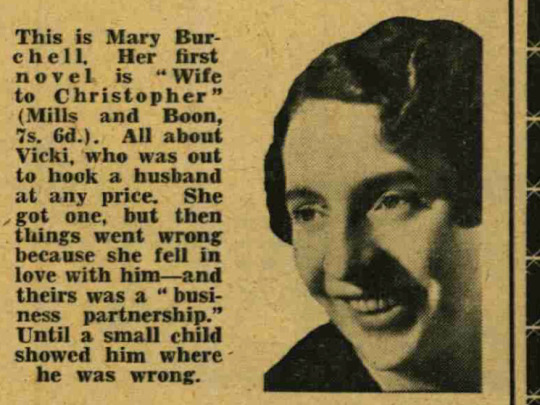
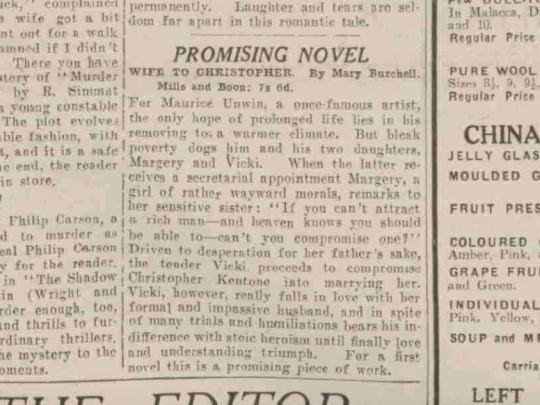
(Above, from the Daily Mail, August 6th, 1936, left, and the Aberdeen Press & Journal, August 12th, 1936. Images ©The British Library Board. All Rights Reserved.)
In short order, she was earning as much as £1,000 per year. That money was going to prove very useful. (All of her novels were published by Mills & Boon, which later became an imprint of the romance giant Harlequin, thus explaining We Followed Our Stars’ reprint history.)
“I realize now that, even though we were in our late twenties, we were not entirely grown up,” Cook wrote of the plans she and her sister had been making during the first half of the 1930s. Indeed, when Englebert Dollfuss, the Austrian chancellor, was assassinated on July 25th, 1934, their main concern was that this might disrupt their planned first visit to the Salzburg Festival. (It didn’t.) They were no more politically aware when, during a visit to Amsterdam near the end of that year, Ursuleac asked them to “look after” a friend of hers: Mitia Mayer-Lismann, a German pianist and educator, who was soon to visit London to give a series of lectures. The Cooks assumed that this meant showing her the sights, which they did. When she asked whether St. Paul’s Cathedral and Westminster Abbey were Protestant or Catholic, they wondered if she was a Catholic and shouldn’t have been taken to see a Protestant church — so they asked.
What they learned was that Mayer-Lismann was Jewish, and it was she who explained the Nuremberg laws to them. Her other purpose in visiting the U.K. was to see if there was any way of moving there with her family. The Cook sisters offered to do what they could to help. The U.K. wasn’t making things easy for would-be refugees from the Nazis (nor was any other country), and half of the Cooks’ work as the decade went on would consist of cutting through reams of red tape. Word of their willingness to do this spread through the Jewish communities of Germany and, later, Austria, keeping the sisters active until just days before war was declared.
The other half of the task was helping those for whom they were able to secure visas to smuggle out whatever portion of their assets hadn’t been seized by the authorities, which by this time consisted mostly of furs and jewelry. This was a genuine cloak-and-dagger operation, if only because it involved making repeated visits to the countries in question at a time when the authorities there were beginning to view British visitors with suspicion. It was at this point that Clemens Krauss got involved: he kept the Cooks informed about when and where he was conducting what, so that when they were questioned at the border they could say that they were going to hear Krauss conduct this opera in that city on that date.
As a side note, Ida’s new prosperity allowed the Cooks to buy a long lease a one-bedroom apartment in Dolphin Square, which had just been built (and where their neighbors included politicians, spies, and Oswald Mosely). Ostensibly, this was so that they would have a crash pad in central London after late nights at the opera. In reality, it served as a dormitory for newly-arrived refugees. Ida recalled that at one point there were twelve people sleeping there.
While Ida seems to have been the family dynamo, Louise’s contributions shouldn’t be overlooked. One of her hobbies was teaching herself languages; she learned German at top speed in 1937 in order to facilitate the sisters’ work. She also put all of her (apparently quite generous) allowance of vacation time during that period into the rescue effort, and also seems to have been the uncredited co-author of, or at least an essential consultant on, Louise’s novels.
At this point I’m going to stop summarizing the Cooks’ story and tell you that if you’re going to read either or both of these books, you should begin with Ida Cook’s memoir, if only because it’s a primary source. It’s also a very useful insight into how an opera buff’s mind works.
Both authors provide their readers with excellent summaries of political events in Germany and Austria between 1933 and 1939 — and both do so without ever talking down to their readers or implying that they shouldn’t need to provide them with this information, which is quite an accomplishment. Cook can be vague about the dates and chronology of personal events, while Vincent simply is vague on music in general and opera in particular, subjects in which she clearly has no genuine interest. (As Fred Cohn points out in his review of Vincent’s book in Opera News — which is how I learned of it; here’s a link, but I’m not sure that it will work for non-subscribers — her subtitle is a complete howler: there were no “stars” among the Cooks’ refugees; in fact, many of the people they helped weren’t involved with music at all. In spite of this, the Library of Congress has classed Overture of Hope as ML (Literature on Music).) As well, Vincent gives short shrift to the war years. (Louise was evacuated to Wales with her office; Ida was an assistant warden in a Bermondsey air-raid shelter, while continuing to write; the Royal Opera House became a dance hall year-round.) On the other hand, she provides us with a firm chronology of the Cooks sisters’ pre-war lives, and she also reveals the hard facts of how the people whose escapes they facilitated fared, which are not happy stories in all cases.
It is also Vincent who relates that Clemens Krauss fared badly in denazification proceedings. Despite his efforts on behalf of his Jewish associates and their families (as well as many complete strangers), he was widely denounced in 1945, and it’s undeniably true that he displayed a Machiavellian streak that led him to consolidate his artistic influence by securing the directorships of both the Vienna and Munich State Operas under the Third Reich. He ended up being banned from conducting for two years, but Vincent documents that just about all of his denouncers were his professional rivals. (The same thing frequently happened in France during the search for collaborators.)
Finally, Vincent quotes extensively from a film treatment that Ida Cook wrote, based on We Followed Our Stars, that is languishing in Joshua Logan’s papers at the Library of Congress. That document needs to be plucked out of purgatory and produced. Right now!
#world war ii#the holocaust#righteous among the nations#first-hand accounts#retrospective accounts#a long post for sunday#lots of history#lots of links#and even some footnotes#oh and this is also about#opera#also#yom hashoah#begins monday evening
8 notes
·
View notes
Text

Hide your wallets, it’s that time again! #TBQsBookDealsYour Friday thread of #romancedeals is ready, FREE to $2.99. Happy shopping! 📚❤
FREE ✦ The Bradens at Weston by Melissa Foster
3 books, including:
~ Enemies to lovers / family feud
~ He's a fashion designer, she's his new assistant
Contemporary Romance (MF) | https://amzn.to/3NPOXHF
$0.99 ✦ Single at Sitka by Katy Regnery
1st POV. Journalist in the area for an assignment answers a personal ad for some no-strings fun with a state trooper (widowed father of three).
Contemporary Romance (MF) | https://amzn.to/3ruEmKQ
$0.99 ✦ Rising Tall Box Set 3 by Cheyenne McCray
4 books, including:
~ Coworkers, detectives
~ Firefighter who saves the heroine from an arson attempt
Contemporary Romance (MF) | https://amzn.to/3pFjDU5
$0.99 ✦ Monster Match by Isabel Jordan
Cinnamon roll hero + curvy snarky heroine meet at a monster speed dating event, and he offers a marriage of convenience. Oh yeah, and he's basically Frankenstein.
Paranormal Romance (MF) | https://amzn.to/3rtJjDH
$2.99 ✦ Unmasking the Thief by Mary Lancaster
Governess + gentleman spy who has been sent on his last mission before resigning.
KU Title
Historical Romance (MF) | https://amzn.to/46FFprg
Putting these lists together takes time. If you appreciate this content, please consider buying me a Ko-Fi. http://ko-fi.com/danielletbq
2 notes
·
View notes
Link
It looks like the author named the nonprofits he claimed stole the election (something left out of the movie so they wouldn’t get sued)
1 note
·
View note
Photo
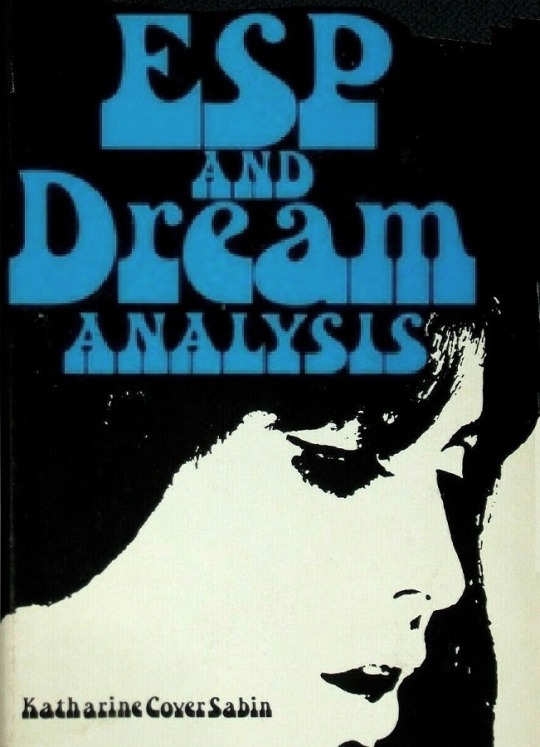
Katharine Cover Sabin - ESP and Dream Analysis - Henry Regnery - 1974
44 notes
·
View notes
Text
Birthdays 5.12
Beer Birthdays
Louis Hennepin (1626)
Frank J. Hahne, Jr. (1883)
Brit Antrim
Mirella Amato
Noah Regnery (1983)
Five Favorite Birthdays
George Carlin; comedian (1937)
Leslie Charteris; writer (1907)
Emilio Estevez; actor (1961)
Katharine Hepburn; actor (1907)
Tom Snyder; television talk show host (1936)
Famous Birthdays
Malin Akerman; actor (1978)
Mary Kay Ash; cosmetics entrepreneur (1915)
Burt Bacharach; songwriter (1929)
Stephen Baldwin; actor (1966)
Yogi Berra; baseball player, coach & manager (1925)
Jason Biggs; actor (1978)
Bruce Boxleitner; actor (1950)
Gabriel Byrne; actor (1950)
Kid Creole; rock musician (1951)
Ian Dury; English rock singer (1942)
Gabriel Faure; French composer (1845)
Kim Fields; actress (1969)
William Giauque; Canadian-American chemist (1895)
Kim Greist; actress (1958)
Tony Hawk; skateboarder (1968)
Dorothy Crowfoot Hodgkin; chemist (1910)
Edward Lear; English writer, artist (1812)
Henry Cabot Lodge; politician (1850)
J. E. H. MacDonald; English-Canadian painter (1873)
Ian McLagan; English keyboard player & songwriter (1945)
Florence Nightingale; English nurse (1820)
Millie Perkins; actress (1938)
Ving Rhames; actor (1959)
Dante Gabriel Rossetti; English poet & artist (1828)
Homer Simpson (1956)
Howard K. Smith; television journalist (1914)
Billy Squier; pop musician (1950)
Frank Stella; artist (1936)
Tony Strobl; comics artist and animator (1915)
Joachim von Sandrart; German painter (1606)
Vanessa Williams; actress (1963)
Steve Winwood; pop singer (1948)
0 notes
Text
Ohne MiG-Empfang: Kroatiens 6 erste Rafales landen in Zagreb | FLUG REVUE
0 notes
Text
More SNOW and books
It is March and we have had a major snow storm. I had hoped I was all done with the shoveling, but it is not to be. I have to say the sun sparkling all over the icy trees is beautiful. At least the snow covers all the plants that Yoshi likes to sleep in - so maybe my latest batch of the creeping crud (some skin rash caused by the cat sleeping on something and then on me.) will heal. You never really know what the weather will bring to us next. I find myself more accepting of the weird weather than perhaps I should be.
This week, I had the opportunity to read two new novels by two of my favorite authors. Both authors write romance with the “happily ever after endings” that I like. The novels do have several basic story elements that are the same. They both write about strong families with multiple children/grandchildren. Families that are caring and kind to their members with strong elements of hope and love. There are also interesting characters and sometimes an aspect of humor in how they deal with each other. Perhaps it is the perfect world where things usually end up fine is what draws me to them. Katy Regnery’s novels are usually spicier with sex and Chris Keniston’s are not. Also, for me, the novels are not long. They are more quickly read. Katy Regnery’s newest book is called Harper. Chris Keniston’s newest book is called Just One Rodeo.
Elise has sent in a guest review and an interview for us this week. The guest review is The Lock Box by Parker Adams. The new interview is with Rhys Bowen and Clare Bowles about In Sunshine or in Shadow.
Just One Rodeo by Chris Keniston
Harper by Katy Regnery
The Lock Boz by Parker Adams
In Sunshine or in Shadow by Rhys Bowen and Clare Bowles
0 notes
Text
The press is almost trying to “will” a recession into being to discredit Biden. All the leading economists are saying we are not heading into one, or only a very light one if at all. Employment is on the rise and unionization is spreading. The economy is still booming and unemployment is very low. Yet the so called “mainstream media” or liberal media is driving a false narrative of impending doom. Why? Two reasons. 1. Ratings. They want tension for ratings and miss the ratings Trump gave them. 2. None of them backed Biden in the primaries and all wanted someone other than an old white male, even though he was the sidekick of President Obama. The fact that Biden won the primaries based solely of the African-American community left them dumbfounded, not too mention the aforementioned community were a main reason he won the general election to boot. The media believes they know better than African-Americans who are extremely loyal to people who have proven themselves allies.
The mainstream media are no strangers to brutalizing Democratic Presidents. Carter took a beating from them. Clinton, also popular with African-Americans, was absolutely crucified by them. Obama was dubbed “no drama Obama” and raked over the coals for being hogtied by Mitch McConnell. Now Biden is being raked over the coals unmercifully, worse than they dragged Drumpf in many instances. Reagan was a hero to the mainstream media. Bush 1 was treated with kid gloves. Bush 2 caused more damage than Trump but was always shown courtesy. Trump did get dragged over his outlandish personality but in my humble opinion not so critically as Biden who in reality is doing a decent job of cleaning up the Trump mess.
Remember the Democrats have only a razor thin majority in the House of Representatives and with Manchin and Sinema openly siding with the Republikkkans on virtually everything they in fact have no majority at all in the Senate. Not all votes in Congress require a simple majority and the Dems just don’t have the numbers to run the show. We are being held hostage by a weaponization of the Electoral College which is allowing a Republikkkan numerical minority to control the Congress.
The Koch political network openly brags about how they own Manchin and Sinema. Koch, along with the Waltons, Mercer, DeVos, Prince, Regnery, and other billionaire families control this nation and are leading us into fascism or civil war to ensure their profits. Hillary was mocked years ago for speaking of a vast right wing conspiracy trying to control the government. Now their are books, innumerable articles, and college courses on what is now out in the open. They are so close to controlling America they aren’t even hiding it any more.
The bigotry, racism, militias, and Christian theocrats are all tools to control what is mainly a southern and rural top-down organized movement. Yes some of the billionaires and their Republikkkan henchmen believe in the bigotry but at its core it is a method to control the deplorables. They had better be careful because the Trump’s and Greene’s could grow out of control. Remember how quickly they took Cawthorn out for running his mouth, not so easy with Trump who can finance himself if need be.
If you want real news without spin you need to read the trusted and established print media, or their websites. CNN which is slanted a bit, while still remaining mostly fact based, has an online presence which is rated as nearly non-biased. Trust the “papers of record” if in doubt. Use google to see what sources are biased left, right, or mainly centrist.
47 notes
·
View notes
Text
Joe Raven. My first love. My only, ever love.
#NewRelease#Bookish#ContemporaryRomance#FirstLove#UnrequitedLove#TragicPast#SmallTownRomance#ItsAlwaysBeenYou#AlphaHero#SecondChanceRomance#CrossCulturalRomance#SurpriseBaby#AccidentalPregnancy#ReunitedLovers#SecretBaby#ChildhoodSweethearts#SoulMate @greyspromo#GreysPromo#ReadNow
0 notes